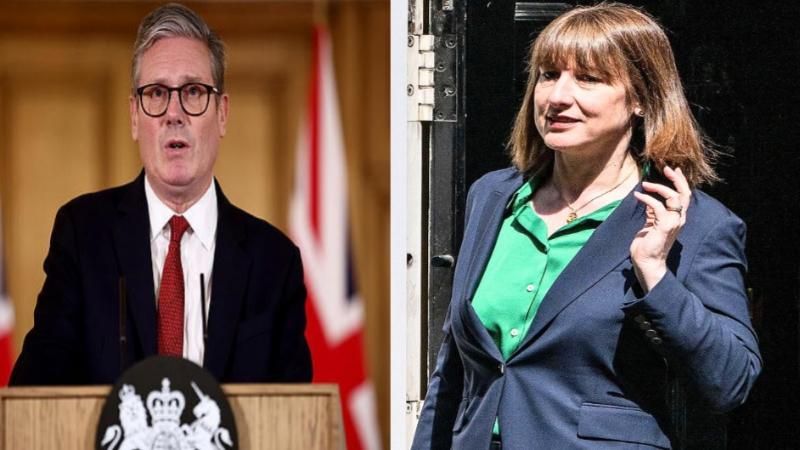Chancellor Rachel Reeves' carefully constructed image of fiscal discipline is on the brink of collapse, as senior Labour sources indicate she is preparing to abandon the strict "fiscal rules" designed to underpin the government's economic credibility. The move, expected to be announced in the autumn Budget, casts a long shadow over Labour's financial stewardship and raises serious questions about the nation's economic future, Daily Dazzling Dawn understands.
Just last year, at the dawn of the Labour government, Reeves had pledged to achieve a balanced budget or surplus by 2030, with day-to-day spending funded entirely by taxation, a move aimed at preventing a repeat of the market instability seen during the Liz Truss premiership. However, these ambitions have been severely undermined by a recent surge in government borrowing. Last month alone, the public sector amassed a staggering £20.2 billion in borrowing, significantly exceeding the £17.6 billion forecast and marking a record outside the immediate COVID-19 pandemic.
This dramatic increase in borrowing has shattered any realistic hope of achieving the Chancellor's targets without resorting to politically unpalatable tax hikes or drastic cuts to public spending. Such measures would almost certainly trigger widespread industrial unrest and a formidable rebellion from the Labour Left, potentially led by Deputy Prime Minister Angela Rayner.
The pressures on the Treasury are mounting. The rise in borrowing is primarily driven by increases in public sector pay, alongside higher benefits and state pensions. Furthermore, Sir Keir Starmer's recent announcement to reverse cuts to winter fuel payments will require significant Treasury funding, as will the ongoing demand for inflation-busting pay rises for teachers and doctors. Adding to the burden, Number 10 is facing increasing calls to abolish the two-child cap on child benefit, a policy that, if repealed, would further strain public finances.
Sources within Labour openly admit that the winter fuel announcement was a strategic move to "prepare the ground to shift on the fiscal rules." One insider revealed, "The fiscal rules will go. I was in the room when it was discussed. They will be changed."
The escalating economic challenges are taking a toll on Reeves' political standing. Labour MPs are now openly discussing her political mortality, with some suggesting that if the economy fails to improve by the time of the Budget, she will have "run out of road." Her position has not been helped by a series of perceived missteps, including adverse coverage over free concert tickets and accusations of embellishing her CV.
Critically, the Treasury's £25 billion raid on employers' National Insurance contributions in last year's Budget has been blamed for hitting business confidence and stifling economic growth, leading to further spikes in borrowing costs. One minister remarked, "Rachel has been badly shaken by the backlash against her strategy. She's started to feel isolated so she's ringing colleagues asking what they think she needs to do and what programmes they want her to implement."
Shadow Chancellor Mel Stride did not mince words, stating, "Labour's economic credibility, already threadbare, will be in tatters if they ditch their 'iron-clad' fiscal rules. Rachel Reeves has never been the Iron Chancellor she claimed to be. She already fiddled the rules to allow her to borrow hundreds of billions more." Stride continued, "If she changes them again she will be the Tinfoil Chancellor – flimsy, malleable and shaped by pressure rather than principle. A Chancellor who doesn't stand firm – but folds when tough choices loom."
He concluded with a stark warning: "Fiscal rules are the foundation of economic trust. If the Chancellor can't stick to her own rules how can the British people trust her with the nation's finances? The Chancellor has massively mismanaged the economy and, given that she has already jacked up taxes to eyewatering levels and borrowed to the point of recklessness, she is running out of options."








.svg)



